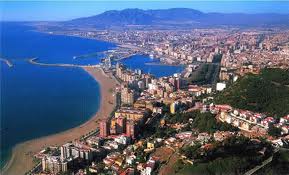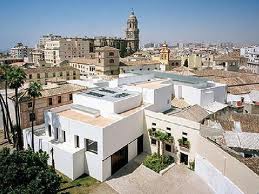Museums in Málaga
When you think of the south of Spain, when you think of Andalucía, the first thing that comes to mind is likely to be connected to the beach, the sun, the laid-back attitude of the people or the good life that is so emphatically the trademark of the inhabitants of the region. As any Málaga city guide will tell you, this city does not escape these stereotypes, despite the fact that it is one of the largest settlements in the area and ranks among the ten most populated places in the country.

It does not escape them, but it does complicate them with the added nuance of a major commercial centre in the middle of this bucholic living. Therefore, Málaga is unlike most other places in Andalucía, both provincial and cosmopolitan at the same time, hectic and yet at ease with the traditions that have shaped the lifestyle of the people of the region over the centuries. This is the reason why the selection of museums in Málaga is as varied as it is erudite.
An outstanding source of pride within the heritage of the city is its status as the place of birth of one of the greatest artists not only of the XX century but of Western civilization at large: Pablo Picasso. Himself the son of a painter, Picasso lived his early life in Málaga, where he received his first instruction as an artist by the hand of his father. Much of this period is documented in the Picasso Museum of the city – an institution that cannot be missed if you spend some time traveling in Málaga.
This is just an anecdotal expression of the close connection – identification, really – that the people from Málaga feel for their town. A deeply-rooted enfranchisement that is reflected in the nature and extension, for instance, of the Popular Arts Museum, located in the renovated XVII century 'Mesón de la Victoria', where the long standing rural tradition of the area is highlighted with comprehensive collections of implements used in many different areas of the daily life of the inhabitants of Málaga though history, from fishing to printing.
But if museums in Málaga provide a detailed mapping of the folklore and the customs that have come to shape the city, they are also actively concerned with the most relevant aspect in the Spanish art scene in the last two decades, namely the development of contemporary art. In this respect the Contemporary Arts Centre is very much orientated in the direction of the German Kunsthaus, where the space is consciously geared towards the dynamic exploration of new trends.

Opened in 2003 as part of the institutional committment to the artistic sector which the Spanish government has displayed in the past decade, the Contemporary Arts Centre of Málaga is open to new and established artists alike, hosting teporary exhibitions alongside its decidedly cataclismic permanent collection, titled Apocalypse. If you are looking for a Spanish abroad course and decide to go to Málaga, this is a place you cannot miss!
Another important presence among museums in Málaga is the new franchise of the Thyssen-Bornemisza Museum in the city, equipped with a selection of Baroness Thyssen-Bornemisza's private collection and geared specifically towards exploring the pictorial tradition of the region of Andalucía. Tracing the roots of this heritage all the way back to the Spanish masters and providing a thorough account of the progression of the aesthetic sentiment from the XVII to the XX century, the Carmen Thyssen Museum is certain to become one of the most visited sites in the city.
Málaga's nascent predilection for museums, however, is not exxclusively directed towards the artisticc scene. In the avant-garde Interactive Museum of Music visitors will find a revolutionary setup that encourages the active participation of the audience to experience in full the sounds and objects displayed in the collection. Inscribed within the historical surroundings of Málaga's medieval wall and encompasing some of the most influential instruments in the development of Spanish music, the Interactive Museum makes a valuable contribution not only to the understanding of musical tradition but to the practice of exhibiting techniques.
Here you will find more detailed information about each of these museums, and the busy cultural timetable of a city like Málaga. Enjoy!



